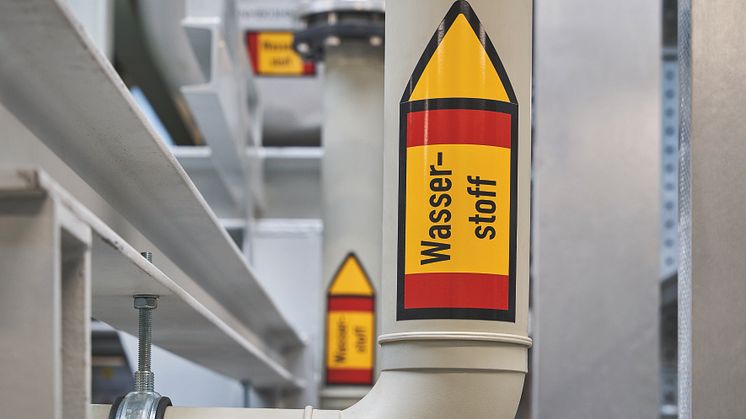
News -
Rostock: Funding for the Hydrogen Project “FormaPort”
Dr. Wolfgang Blank, Minister for Economic Affairs, Infrastructure, Tourism and Labour of Mecklenburg-Vorpommern, today handed over a funding notification of around €2.8 million for the research and development project “FormaPort” on the sidelines of the Hanse Sail in Rostock. On the premises of the Leibniz Institute for Catalysis (LIKAT), the Minister also learned about current work on the chemical storage of hydrogen.
The joint project “FormaPort” is developing an innovative chemical hydrogen storage system based on formate salts. The technology is being jointly developed by local companies and research institutions and enables both safe storage and easy transport of hydrogen. The project thus provides practical solutions for importing green energy from regions with surplus capacities – for example via the efficient port infrastructure at the Rostock site.
“FormaPort is a prime example of how, in Mecklenburg-Vorpommern, high-performing research institutions and innovative companies work hand in hand to create technologically sophisticated solutions that are also internationally significant and visible. The combined expertise of the project partners helps to position the region for the future in terms of sustainable energy technologies. Our state shows how the energy transition can be approached regionally and have an international impact – through smart networks, innovative research and a strong economy,” said Minister Dr. Blank.
The project benefits from the latest scientific findings of the Leibniz Institute for Catalysis (LIKAT) in the field of innovative catalyst systems and makes targeted use of the specialised know-how of the project partners based in Mecklenburg-Vorpommern: LIKAT, AKROS Energy, TAB Technologie- und AnlagenBau, Engineering- und Managementgesellschaft mbH, and Wismar University of Applied Sciences. The focus is on heterogeneous catalysis, the crystallisation of salt systems for hydrogen storage and transport, and special plant engineering. The aim is to make the reactions efficient and the storage material transportable.
During the visit, the Minister was given a live demonstration of how chemical hydrogen storage works. Experiments showed that both the unloaded storage salt and the produced formate are non-toxic, non-flammable, and therefore safe to handle.
Research is currently being carried out on a small scale in the halls of LIKAT, and in the next, larger-scale stage of development, the facilities of AKROS Energy will be installed at the Apex site in Laage.
To implement the project, the state is supporting the project partners with funds from the European Regional Development Fund (ERDF) amounting to a total of €2,789,416.
